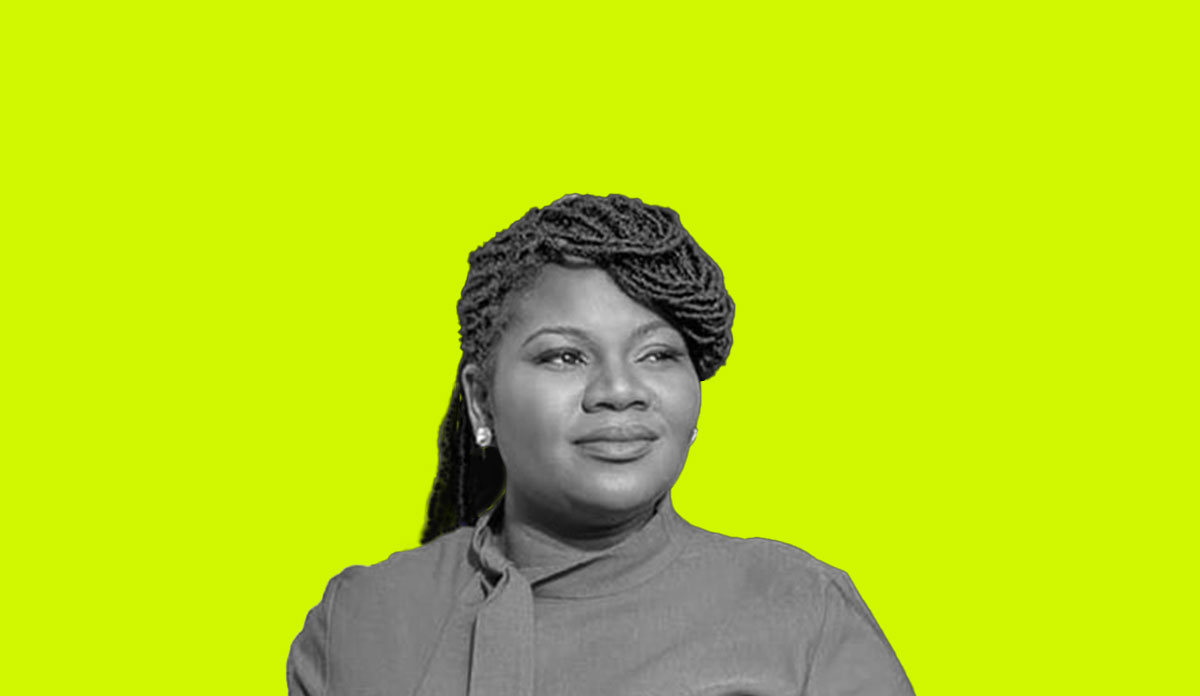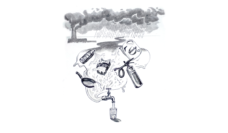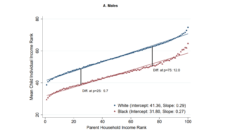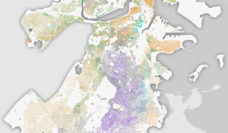Public Health Post: How did political discourse affect the trajectory of the pandemic?
Kellie Carter Jackson: Almost from the get-go, the language around the pandemic became racialized. COVID was the “Chinese flu,” which marginalized and blamed Asian communities. This fear-mongering always gets tethered to race and racism, and plays out in how we talk and think about the pandemic.
During COVID-19 we saw many acts of rebellion against things like mask mandates and vaccines. Can you speak to the historical roots of rebellion for “individual liberty”?
We are a country built on protest. In some ways that’s good, and in some ways that’s problematic. When it comes to the pandemic, the ways that white people protest against things are often cloaked in privilege and become harmful very quickly. With mask mandates, it’s all about, “You’re impinging on my rights!” It’s an individualized approach to thinking about the pandemic that can be traced back to colonialism. Culturally, we have not been programmed to think of ourselves as part of a community that acts as a block for the benefit of the group.
How was this individualism tied to race and racialized language?
In May 2020, the numbers started coming out about the disparities of who was dying from COVID. We saw that Black, and Brown, and Indigenous people were dying at exponentially higher rates than their white counterparts. This signaled to a lot of white people, “Okay, not my problem, so I’m not going to wear a mask because this isn’t killing me.”
And so this idea about who was expendable in society – mainly people of color – came to the forefront, which fostered indifference. If we think that whiteness is protected and preserved, then we’re not going out of our way to help out Indigenous, Black, and Brown people.
How can we overcome such ingrained individualism to more effectively address future public health crises?
We have tools that draw us closer together. If there is one thing that brought solidarity in the pandemic, it was humor. A lot of gifs and memes went around that were hysterical, and there is so much about humor that builds solidarity because it draws on our common experiences. With humor, there doesn’t have to be a cultural or racialized component attached to it for it to be funny. The subtler ways we find community is often through things we don’t think are that important. But laughter, joy, and music all matter a lot.
A large body of your work focuses on abolition. Can you talk about how the prison industrial complex perpetuates COVID-19 disparities?
Incarcerated people contracted COVID at rates four times higher than the public. When you are incarcerated, it is hell. There are no good experiences while you are in prison. Prisoners are given the least and last of everything. Their meals aren’t great. Their ability to have mobility is not great. They’re in close quarters with hundreds of people. They’re also in isolation, which in itself is a form of cruel and unusual punishment.
How is abolition tied to equity?
Abolition is not just about bringing about emancipation for Black people, but bringing about equality for Black people. What I love about the abolitionists is their movement is centered around human rights. When we look back in history, we see that the prison system is relatively new. So, if there was a world in which prisons did not exist – and we all lived in that world for a very, very long time– then I think we can also imagine what it looks like to do punishment differently.
What are some political successes (discourse, policies, etc.) that came from the COVID-19 pandemic response?
People are not willing to go back to how things were. Normal was harmful, especially for a lot of people of color. They don’t want to go back. There is definitely a push to redo and reimagine how we go back to work and find a new way of orienting our lives. It’s about getting the greater majority to be in solidarity with those who are doing this really good work and fight on behalf of all people, especially those who are marginalized and oppressed.
Carter Jackson will speak during the virtual Public Health Conversation “The Next Normal: Politics and Health” on October 25, 2021 from 4:30 to 5:45 p.m. To register, click here.














